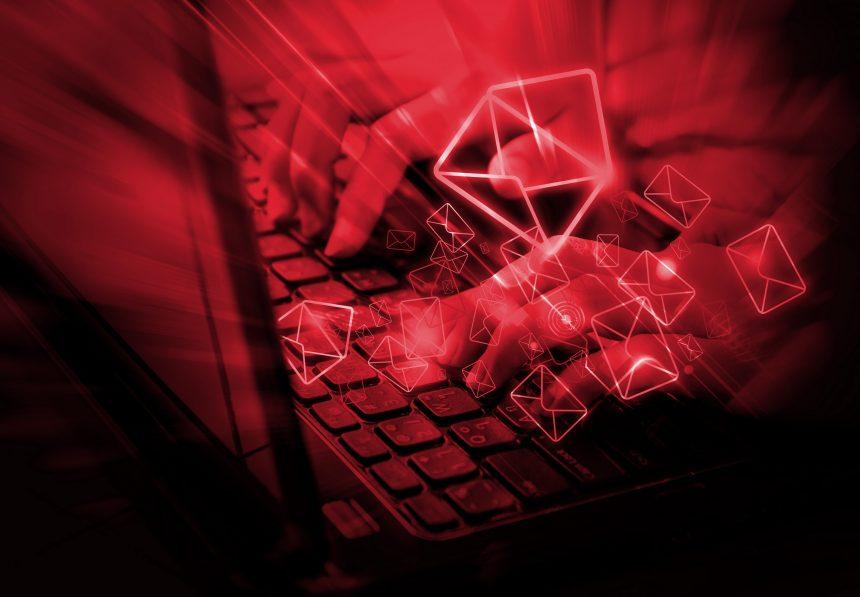Phishing scams are deceptive attempts by cybercriminals to trick individuals into divulging sensitive personal information, such as usernames, passwords, credit card details, or other private data. These attacks typically involve fraudulent communications, often in the form of emails, that appear to come from reputable sources. Phishing scams aim to exploit the victim’s trust, manipulating them into clicking malicious links or downloading harmful attachments. The threat posed by phishing scams is significant, as they can lead to identity theft, financial loss, and severe damage to personal or business data. Victims of phishing attacks may also inadvertently install malware or provide attackers with access to their devices, leading to further security breaches.
Download SpyHunter Now & Scan Your Computer For Free!
Remove this and any other malicious threats to your system by scanning your computer with SpyHunter now! It’s FREE!
The G7 Italia Email Scam: A Detailed Look at the Threat
The G7 Italia Email Scam is a phishing attack that has been circulating recently, attempting to deceive recipients into believing they have received a legitimate communication from the prestigious G7 summit. The email claims to offer important information related to the G7 conference, prompting recipients to open attachments or click on suspicious links. The email often appears to come from a trusted or official-looking address, such as “info@g7italia(.)org.” However, these emails are not associated with the actual G7 summit.
The scam typically includes a message urging recipients to download an attachment or click on a link to access details about the event. Once the victim interacts with the email’s content, they may unwittingly expose themselves to a range of risks, including the installation of malware on their system or the theft of personal information. The goal of the scammers is to either collect sensitive data or infect the system with malicious software for future exploitation.
A common reason for encountering the G7 Italia Email Scam is related to the increasing number of online events and conferences. Many individuals may believe they’ve been invited or registered for such events, leading them to act on the email without suspicion. The attackers prey on the recipient’s desire to stay informed or involved with significant global events like the G7 summit, using this as a tactic to elicit engagement.
Similar Phishing Scams You May Encounter
In addition to the G7 Italia Email Scam, there are other phishing scams that may use similar tactics. These include:
- Fake Conference Invitations: Scammers may send emails claiming you’ve been invited to international conferences, offering links to fake registration sites.
- Fake Job Offers: Many phishing emails masquerade as job offers from well-known companies, asking for personal information or payments to secure the job.
- Bank Phishing Scams: These emails typically ask you to verify your bank account information or log in to a fraudulent website that looks like your bank’s portal.
- Shipping Notification Scams: Emails that appear to be from shipping companies, claiming there is an issue with your delivery, prompting you to click on a malicious link or open a harmful attachment.
How to Remove Malware from a Phishing Attack
If you’ve fallen victim to the G7 Italia Email Scam or suspect your device may have been compromised, it’s essential to act immediately to remove any malware and secure your information. Follow these detailed steps to remove any associated threats from your system:
- Disconnect Your Device from the Internet: Disconnect from Wi-Fi or unplug any Ethernet cables to prevent the malware from communicating with remote servers and further spreading across your network.
- Scan Your Device with Anti-Malware Software: Use a reputable anti-malware tool like SpyHunter to scan your system for malware. SpyHunter can detect and remove threats that might have been installed by phishing scams, such as Trojans or ransomware. Download the tool and perform a full system scan to identify any suspicious activity.
- Delete Suspicious Files and Email Attachments: If malware was installed via an email attachment, locate and delete the attachment from your email inbox and any folders where it may have been downloaded.
- Update Your Passwords: Change your passwords, especially if you suspect any of your accounts might have been compromised. Use a strong, unique password for each account, and consider enabling two-factor authentication for added security.
- Check for Unwanted Software: Review your system’s programs list and remove any unfamiliar or suspicious software that you don’t remember installing.
- Clear Your Browser History: If you clicked any links in the phishing email, clear your browser history, cache, and cookies to remove any traces of malicious activity.
- Run a Full System Backup: After the malware has been removed, run a system backup to protect your important files from potential future threats.
How to Prevent Falling Victim to Phishing Scams
To avoid future phishing scams, consider the following preventive steps:
- Be Skeptical of Unsolicited Emails: Always be cautious of unsolicited emails, especially those that request personal information or prompt you to download files or click on links.
- Check the Sender’s Email Address: Inspect the email address carefully. Phishers often use addresses that look similar to legitimate ones, but contain slight variations.
- Look for Red Flags: Watch out for grammatical errors, urgent language, or requests for personal or financial information. These are common indicators of phishing attempts.
- Verify Links Before Clicking: Hover your cursor over links to see where they lead before clicking. If the link doesn’t match the claimed destination, do not click on it.
- Use Anti-Malware Protection: Ensure you have updated and reliable anti-malware software running on your system to detect and block phishing attempts in real time. SpyHunter is a powerful tool to help protect your system from various types of malware, including those introduced via phishing.
By being cautious and using preventive measures, you can minimize the risks posed by phishing scams.
Protect Your Device with SpyHunter
To ensure your device is protected against phishing scams and other malware threats, download SpyHunter today. SpyHunter provides comprehensive protection, real-time threat detection, and easy-to-follow removal guides. Scan your system for free and ensure that it is free from hidden threats.
Text Presented in the “G7 Italia” Spam Email Letter
Subject: The update on your fund approval status is still in progress
Dear -,
You have been recognized as a recipient of our G7 empowerment grant through the IMF’s initiatives for advanced economies.
This 2 , 000 , 000 Euros set aside for you is intended to promote global economic stability.
To obtain more information, please reply to this email.
Dedicated to serving you
Giorgia Meloni
Chairman/Chairperson G7 2024
G7 ITALIA 2024




